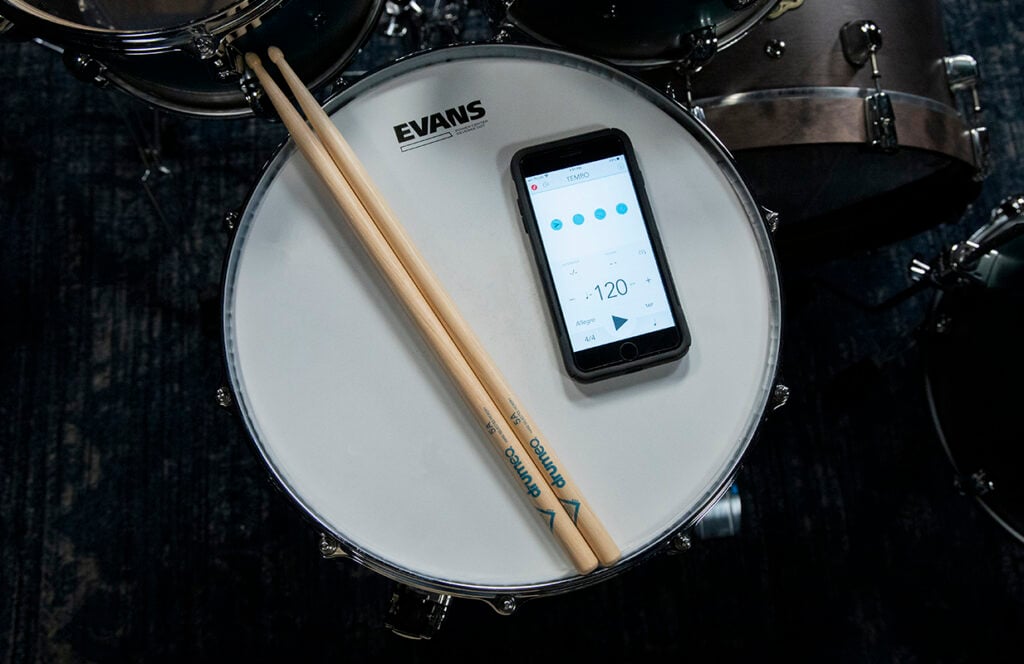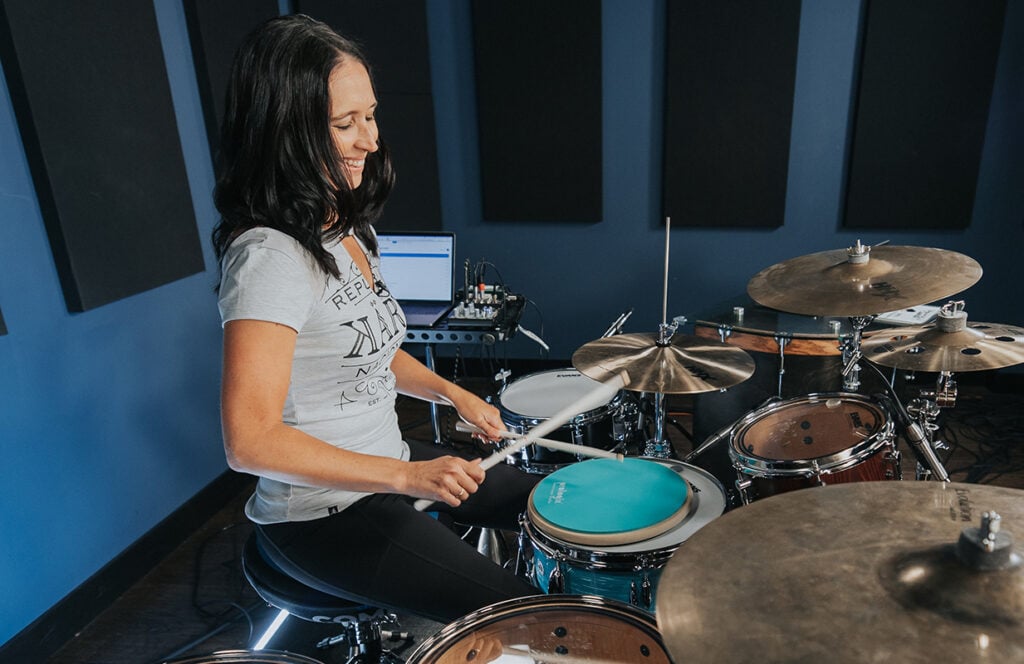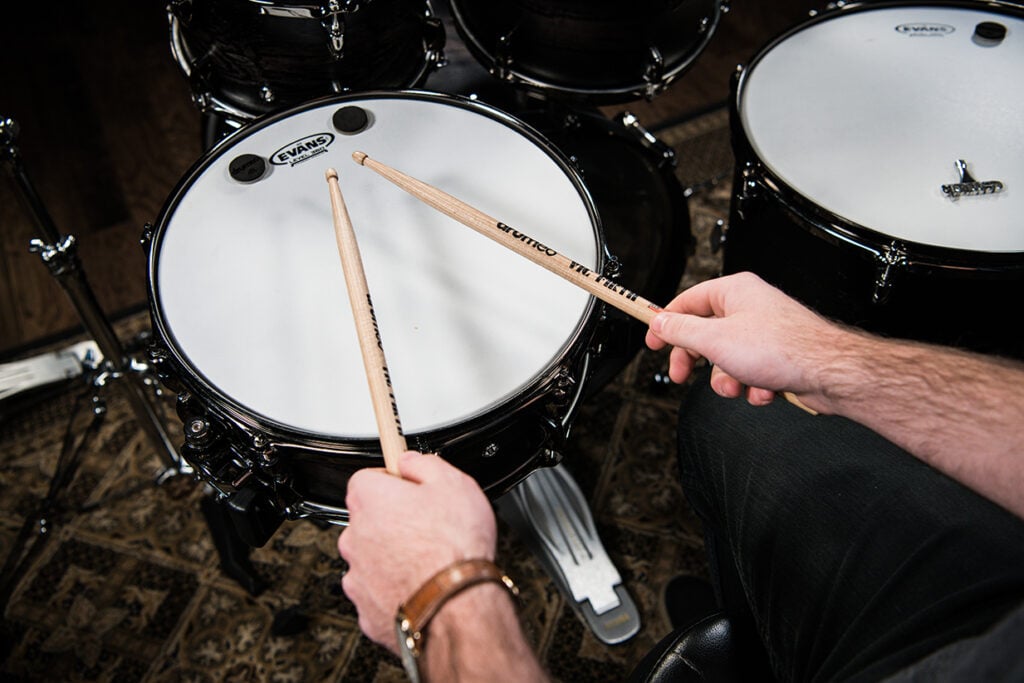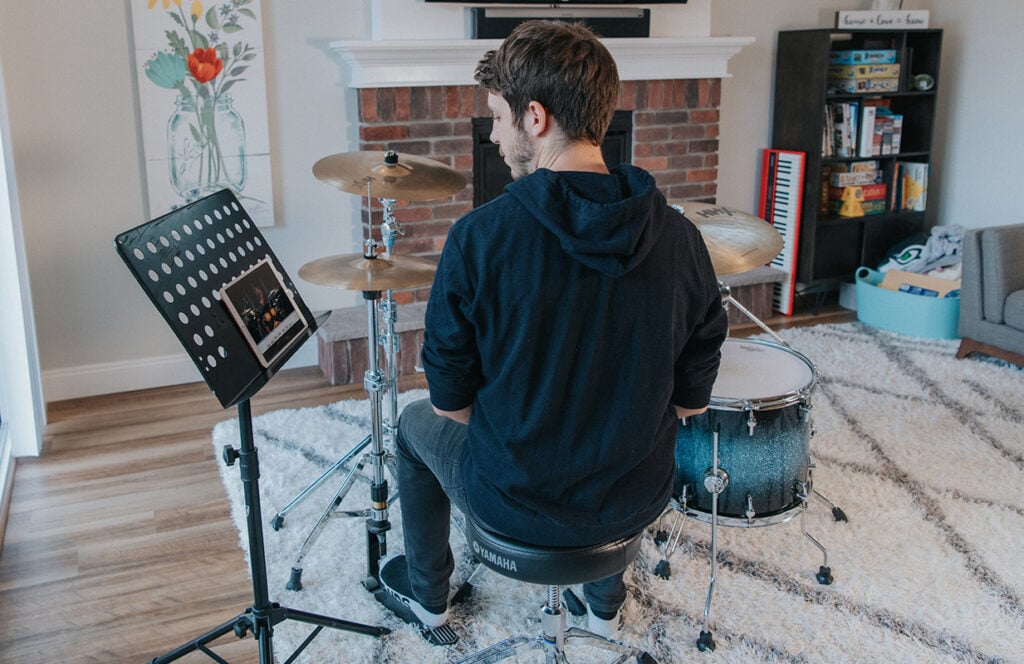The triple stroke roll is a key drum rudiment that sounds awesome in triplet-based music styles like jazz and Latin. With three strokes per hand, you can use this pattern to add flair to your beats and fills. Don’t forget to try it out with one hand on the ride cymbal!

The triple stroke roll consists of three strokes on one hand followed by three strokes on the other hand.
Think of this as a progression of the double stroke roll (two strokes per hand instead of three).
The triple stroke roll is one of the simplest rudiments, but it can take time to get it up to speed. Learning it can help you build endurance and technique in each hand.
Here’s what the triple stroke roll sounds like:
You can use this tool to practice along at the tempo that’s best for you (it’s the one Drumeo members use when practicing with the 3000+ play-along tracks inside our members area).
► Click here if you want to learn how to read drum music
The biggest challenge in playing tight triple strokes is finding even, consistent spacing between each note – especially if you’re using the surface’s rebound to play the second and third strokes as you increase the tempo.
Your goal should be to make your triple stroke roll sound as smooth and clean as a single stroke roll. Every note should sound as similar as possible and you should ideally be able to lead with your right hand or your left.
Here are some tips to help your triple stroke rolls.

When you’re first learning how to play something, it’s fine to test it out without a metronome as you get used to the pattern. But you shouldn’t go click-free for long. The metronome will help you develop a better internal clock and show you exactly where the timing of your strokes is inconsistent (or where it’s right on the grid).
You can buy a physical metronome at a music store or download a metronome app online.

While it might be tempting to get up to speed as quickly as possible – especially if you’re feeling confident – make sure you’re really playing the triple stroke roll well before you increase the tempo. You want to stay relaxed and use rebound to your advantage.
Be honest with yourself and don’t move on until you’ve really got it down. Don’t just say “it’s good enough”. Develop control first, and speed will come later.
Try setting your metronome to 60 BPM and then slowly work your way up 5 BPM at a time.

If you’re a right-handed drummer, you probably default to starting triple stroke rolls with your right hand. Make sure you also practice starting them with your left hand. This will help you get a more consistent sound out of both sticks and give you more confidence and control.

It’s easiest to correct your posture or grip immediately if you’re watching yourself in a mirror. Try to set up a practice pad and a snare stand in front of a full length mirror if you can.
The height of your right stick might not match the height of your left. You might notice you’re gripping your left hand too hard. Use your reflection as a window into how you’re doing. It’s like becoming your own drum teacher!

While playing in front of a mirror will help you fix issues on the fly, you might not realize when something is wrong during your practice session. Sometimes we don’t notice issues while we’re in the middle of playing – especially if we’re concentrating hard.
Whether you’re propping your phone on your dresser or capturing it all with a camera and tripod, it’s helpful to watch your practice sessions and critique yourself from a ‘third party’ perspective.
We’ve put together a playlist with drumless tracks at different tempos so you can practice this rudiment over real music:
Once you’re comfortable playing triple strokes on a practice pad or a single drum, you should move them over to the drum set.
You can play a triple stroke roll on one drum or break it up between multiple surfaces. Here are some exercises you can try.
#1:
#2:
#3:
#4:
#5:
Once you’ve worked through these exercises, come up with your own ideas. Any surface can be part of the pattern! You could even challenge yourself to alternate triple strokes between your hands and your feet.
With enough solid practice, you should start feeling more confident in your playing. Mastering the triple stroke roll will get you one step closer to playing anything you want on the drums, especially when it comes to latin grooves with complex cymbal patterns.
Once you’ve got a good handle on the triple stroke roll, you might want to give the triple ratamacue a try.
And don’t forget the double stroke roll (in case you got excited and jumped ahead to triple strokes).


By signing up you’ll also receive our ongoing free lessons and special offers. Don’t worry, we value your privacy and you can unsubscribe at any time.
We use cookies for traffic data and advertising. Cookie Policy »